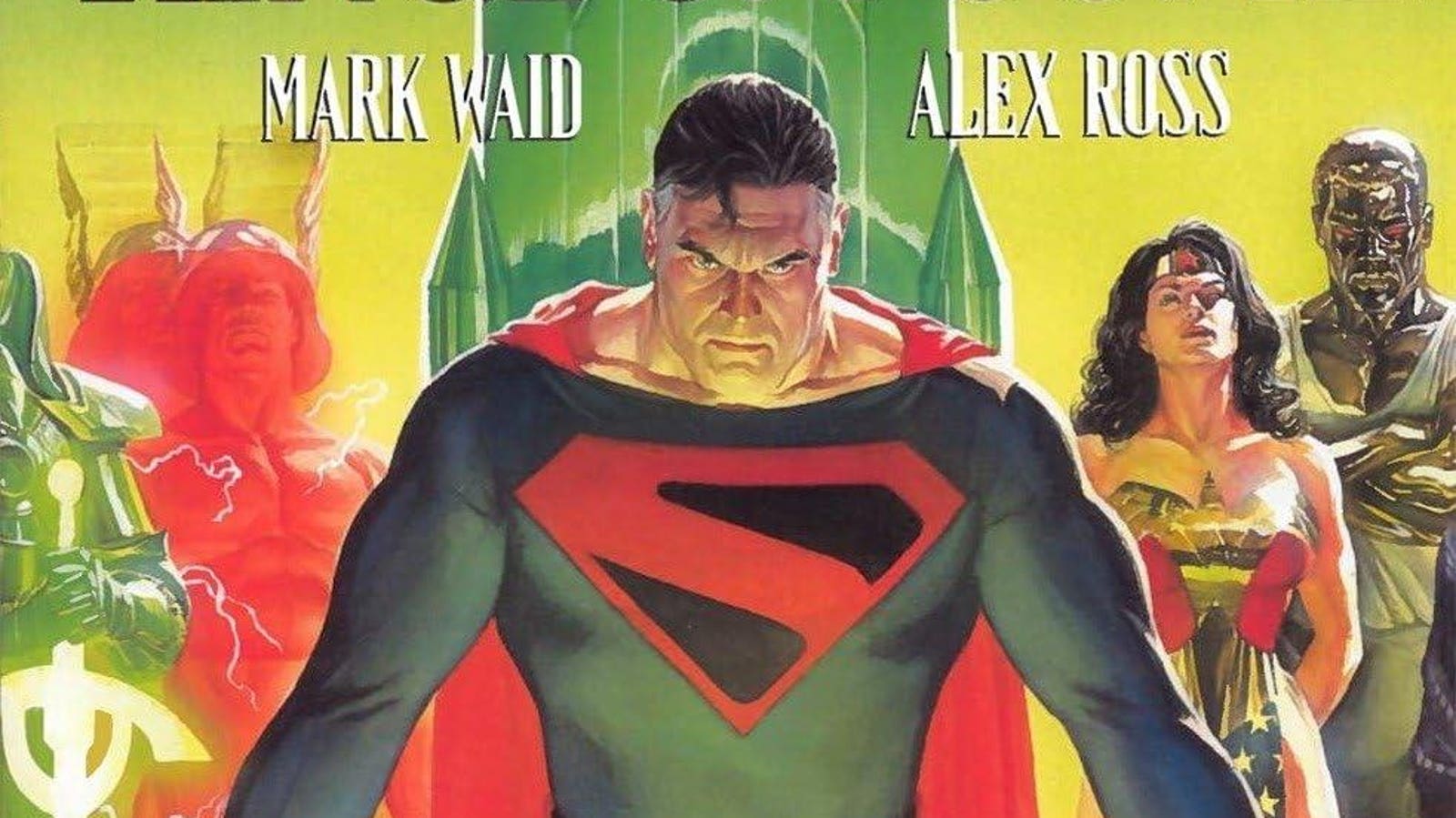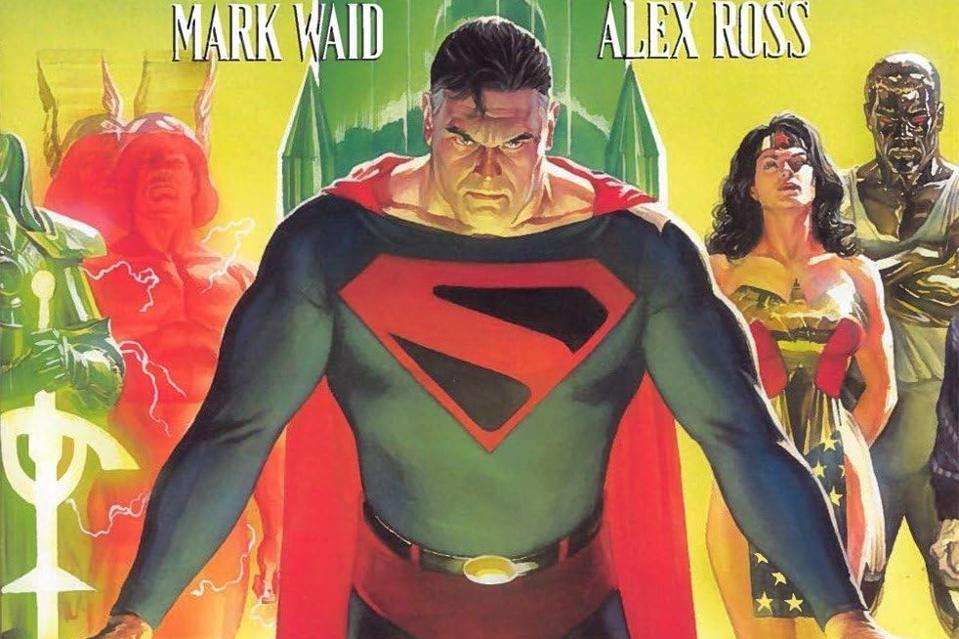Detail from cover of Kingdom Come (1996) by Mark Waid and Alex Ross, DC Comics.
Mark Waid knows a thing or two about Superman. Besides writing the Man of Steel’s adventures in comics for the past 40 years (including the classic Kingdom Come and Superman: Birthright, and currently in DC’s Action Comics, World’s Finest and Justice League Unlimited), he has been an unabashed fan of the character since childhood; only a fool would test his knowledge of Superman trivia. But one question about the new James Gunn Superman film has left Waid stumped: why certain corners of the media and fandom are so upset to discover that the legendary “visitor from another planet” identifies as an immigrant.
From Superman’s first appearance in Action Comics #1 (June, 1938), it has been canon that the infant Kal-El was sent to Earth by his parents to escape the destruction of his home planet, Krypton, and grew up adopted by the Kent family on a farm in Kansas. When he discovered his super-powers as a teenager, it was his values and grounding that taught him to use them for the benefit of humanity. He assimilates into American society as Clark Kent, but his true identity is always that of an alien. James Gunn’s Superman (2025) is just the most recent version of the character to echo the theme that creators Jerry Siegel and Joe Shuster, both children of immigrants, embedded into their character more than 90 years ago, years before Superman was published and became an icon.
“If you haven’t noticed that he’s been an immigrant refugee for the past 87 years, I don’t know what to tell you,” said Waid in an interview earlier this week.
Waid was reacting to criticism from outlets like Fox News. which called director James Gunn’s take on the character “Superwoke,” using a screen graphic saying “Iconic movie hero to embrace immigrant themes.” Actor Dean Cain, who portrayed Superman in the 1990s show Lois and Clark, also echoed these sentiments.
Superman writer Mark Waid
“There are no merits to that argument,” says Waid. “It’s only an issue now because of the desperate efforts of conservative media to get attention for itself. The whole point of the movie is that a child came to America with nothing and no knowledge of how to act, and he learned what is good and noble and right by growing up here. How is that possibly anti-American?”
Waid has been a longtime critic of right wing fandom and has frequently drawn the ire of “Comicsgate,” a self-identified movement of fans outraged at diversity, social justice and other progressive themes in popular culture. Usually, he tries to tune out the noise and simply tell good stories about superheroes, including long runs on The Flash, Captain America, Fantastic Four and dozens more. But often, the tone that the discourse has taken leaves him baffled.
“Every day, Superman is learning to be a better human,” said Waid. “I don’t see why that’s a political message. The point of the movie is that we need to be kinder to each other, and that kindness is a virtue. Bullies hate that because kindness takes their power away. It’s their kryptonite. Any hint of compassion or kindness is perceived as weakness and derided as ‘woke.’ And boy, that’s not just the message of Superman, but of every superhero that I’ve written, and every superhero I can think of.”
Waid says the culture war rhetoric has occasionally given him pause about pursuing certain kinds of story tropes. In an age where you can’t necessarily assume people will identify a narcissistic, xenophobic, power-mad billionaire as the villain, or the wholesome, values-based champion of the underdog as the hero, even writing characters as straightforward as Superman has become a challenge.
“There are times in the past few years I’ve had to self-correct because I don’t want people thinking I’m deliberately mocking any actual political administration,” said Waid. “It’s not because I don’t have the courage of my political beliefs, it’s that it takes away from the story. If you’re looking for allegories that aren’t there, then the reader isn’t paying attention to what makes the superhero story a superhero story.”
Waid said that audiences for films like Superman should leave their baggage at the door and take the movie on its own terms. “Most superhero movies are about bringing superheroes into our world,” he said. “In Superman, we’re stepping into his world. It’s a world of black and white [morality], where someone interfering in a war to save lives makes perfect sense in context. That’s the kind of thing the character was built for. And it doesn’t come across as corny in the film; it comes across as earnest. That’s a fine line, but they pulled it off.”
James Gunn tips his cap to writer Mark Waid with an easter egg in Superman (2025)




